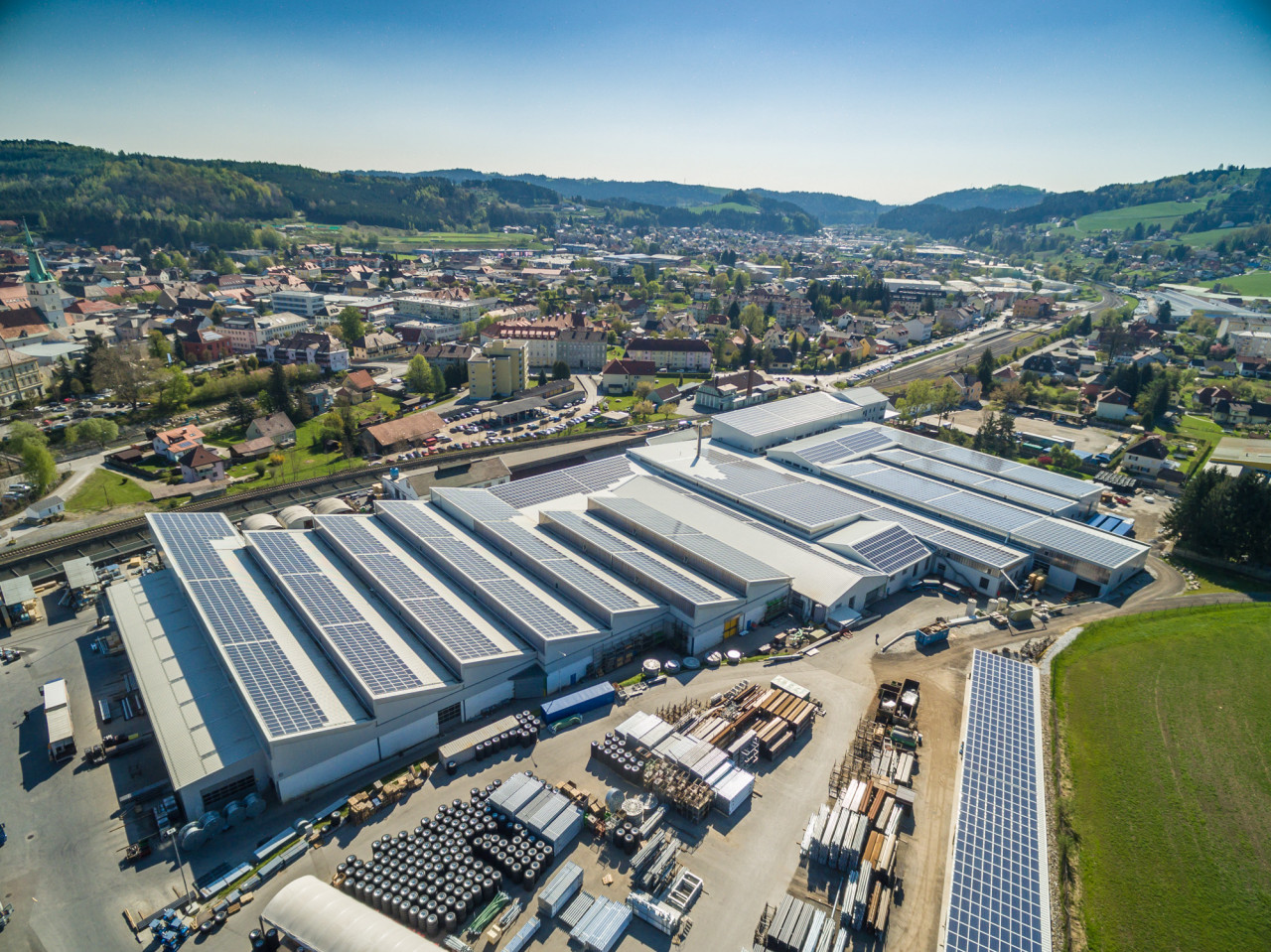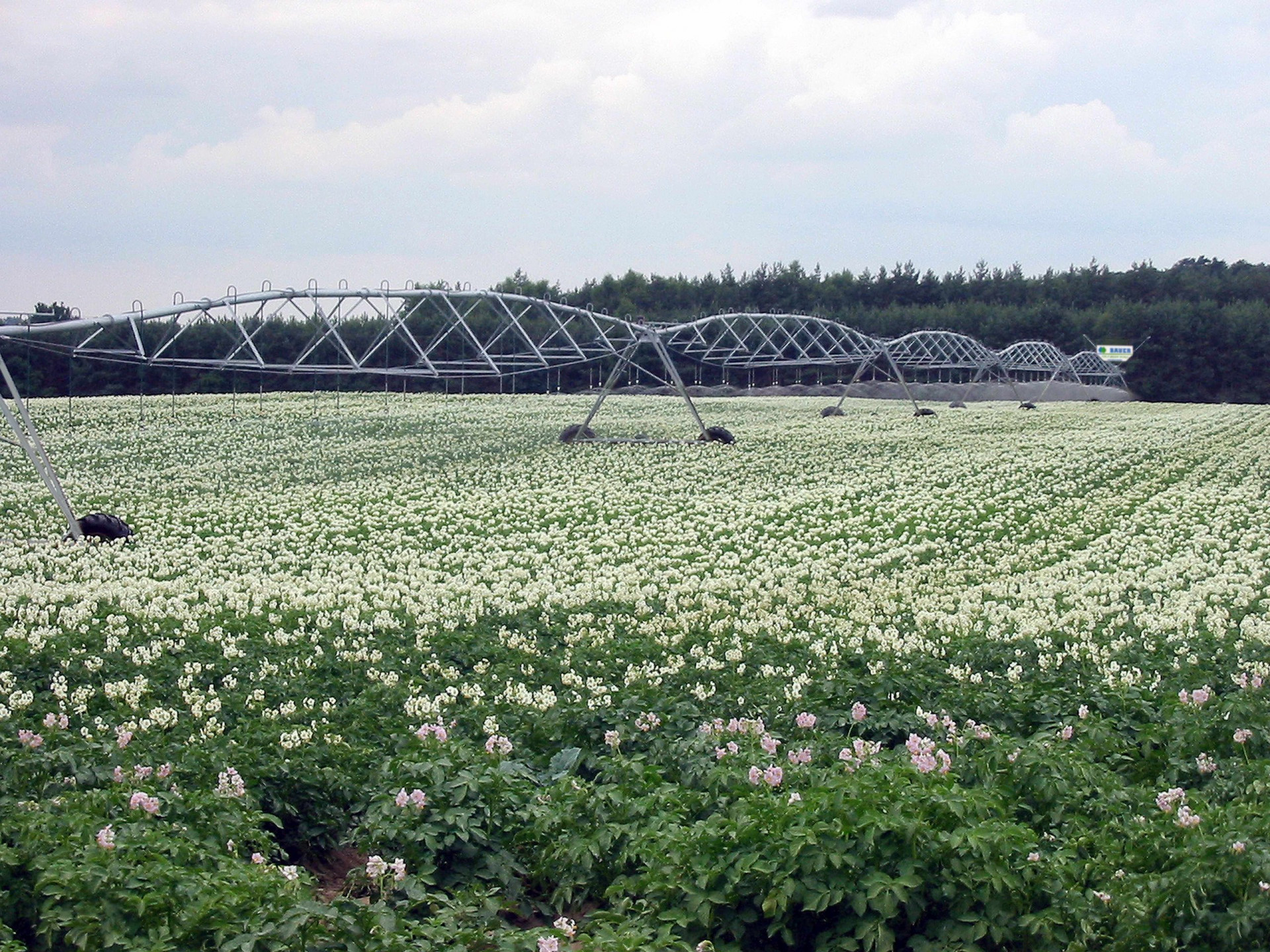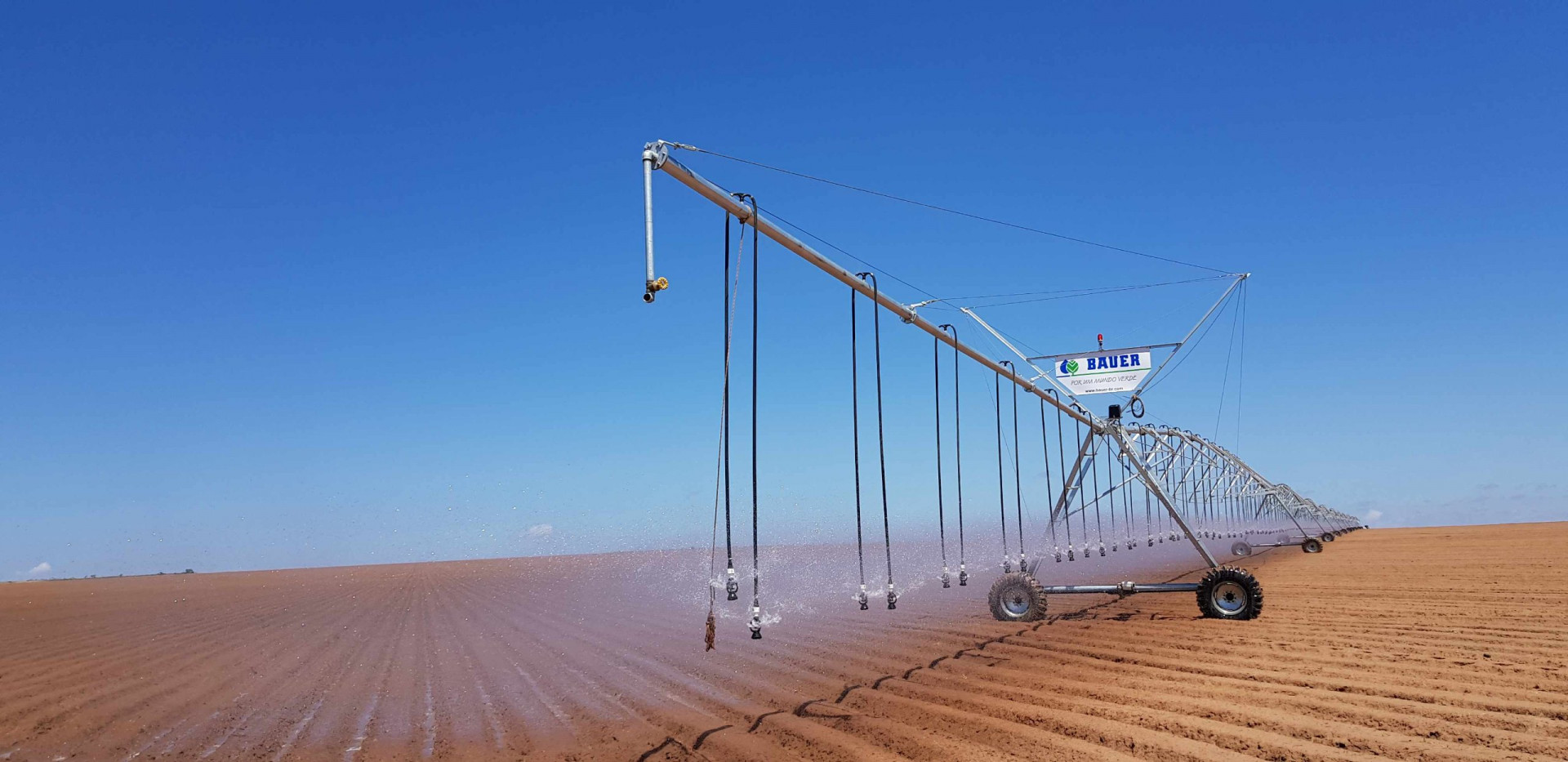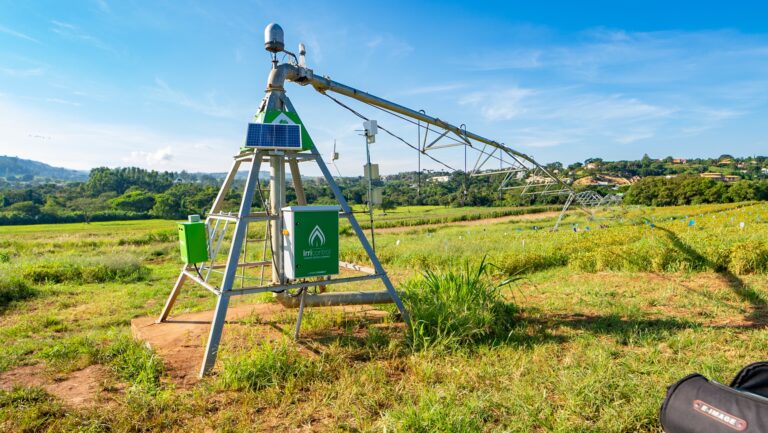
Extreme weather events are increasing. Long periods of drought are followed by enormous amounts of precipitation that soil and plants cannot absorb. The past hot summers have shown that irrigation is an important measure to ensure yields. It is clear: With climate change, the importance of irrigation will increase in the future.
Multiple reasons for irrigation
Especially in times of climate change, irrigation is the basis for ensuring the supply of food. In addition, farmers indicate different reasons for purchasing an irrigation machine. One reason is the absolute need to increase productivity due to lack of land. Or to irrigate zones that suffer from very unfavourable natural conditions. But also the increase in quality is an important factor for investing in irrigation systems. A lack of water means stress for the plant, which of course is also reflected in the starch, sugar and energy content of the individual crops.

The right dose at the right time in the right growth phase
It is crucial for efficient irrigation and thus for a good harvest that the plant is supplied with water at the right time, in the right dose and in the right growth phase. Needs-based irrigation is the basis for an optimal harvest and is considered an insurance that the use of seeds, fertilizers and energy really pays off. In England, for example, where it normally rains often, it is essential to irrigate potato fields. Especially in spring, when the potatoes have to sprout, it does not always rain sufficiently in England. If the potato-plant is not supplied with sufficient water at this stage, it is already predetermined that yields will be very poor. Not only potatoes, but also field vegetables and beets are among the main crops that do not grow satisfactorily without irrigation. At the same time, we are also observing that malting barley and corn increasingly require additional irrigation.
Technical trends
Water is a precious resource and only available in limited quantities. It is therefore all the more important to only irrigate the exact dose required. For this reason modern irrigation management has to take current climate data, such as soil moisture and conditions, temperature and humidity into account, in order to calculate and give the necessary water requirements for the crop. Reliable, precise irrigation control provides valuable services, preferably as automated as possible. Modern irrigation technology is heading precisely in this direction: Precise control, monitoring, operational planning, automation and smart irrigation are indispensable for many farmers. The more efficiently water is used, the less energy is wasted. Energy efficiency together with manpower is an important cost factor when using different irrigation systems.
The right irrigation solution for the farm
Whichever mechanical irrigation system you chose, it is all about water distribution efficiency. A proven mechanical irrigation system used worldwide is the so-called hose reel machine. The great advantage of this system is that it can be moved flexibly and easily from one field to the next. Maintaining an even feed speed is essential for efficient use of the hose reel irrigator in order to ensure constant and precise water application over the entire length of the field. The optimum speed, which can be determined from special performance tables, can be precisely set with an irrigation computer and maintained over the entire irrigation operation. The modern devices are absolutely precise and therefore also water-saving. Using special applications - such as the GPS-supported app "SmartRain" from Bauer - it is also possible to monitor and control the irrigation machine. This saves working time and of course travel time to the machines, which brings us to the disadvantages of this system: Due to the increased workload and energy consumption compared to other methods, it is comparatively expensive to operate.

Trend towards low-pressure systems
For this reason, the trend in irrigation is moving more and more in the direction of low-pressure systems that require little manpower such as pivot systems. Thanks to the GPS or underground-controlled corner-arms it is now also possible to irrigate the corners of a field, which was a problem in the past. Thus, previously unproductive zones now can be cultivated and the available area can be optimally utilized. Due to the further development of pivot systems to linear and so-called centerliner systems, the perfect solution can now be found for every surface shape.
The water distribution efficiency of all of these systems is very high due to the use of low-pressure spray nozzles - the main advantage is their energy efficiency. Most spray nozzles nowadays already work with a connection pressure of approx. 0.8 bar and are therefore far superior to other systems in terms of energy consumption.
However, these types of machines are now even going a step further and using techniques that allow individual nozzles of each machine to be switched on and off individually. This principle is called VRI (Variable Rate Irrigation) and is an integral part of modern precision irrigation. With VRI, the application rate can be individually adjusted to the corresponding soil type, plant species and the growth stages of different crops. On the one hand, this allows the water distribution to be optimized and, on the other hand, there is also the possibility of very precise plant fertilization using sprinkler systems. The result is an application rate that is perfectly tailored to the culture and thus an economically optimized and responsible use of the precious resource of water.
Pivot and linear systems impress with a high degree of automation as well as reduced operating costs, since they need lower connection pressures. However, a certain field size is required for these systems to be economical. It must also be taken into account that permanently installed systems cannot be fully utilized every year due to crop rotation and the consequent cultivation of crops that do not require much irrigation. BAUER has been dealing with these and other irrigation problems for decades and invests heavily in the development of energy-efficient and therefore water-saving control technologies. For a green world and a future worth living in.

Find out everything about our new innovative systems for pivot systems from BAUER.